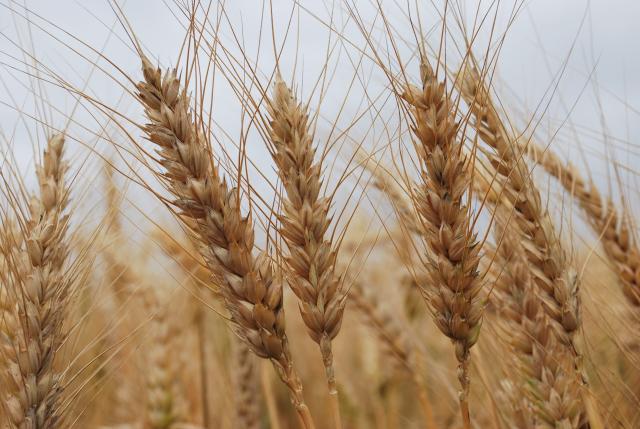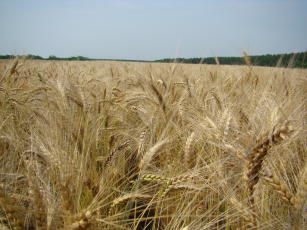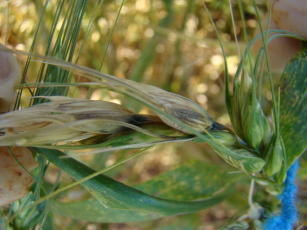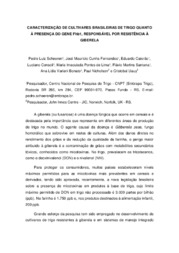Partnership seeks more resistant wheat
Partnership seeks more resistant wheat
Photo: Paulo Kurtz

Partnership with UK researchers to fight diseases such as fusarium head blight and wheat blast
The partnership between Brazilian and British researchers can pave the way towards wheat plants that are more resistant to wheat blast and fusarium head blight. Dozens of Brazilian genotypes have already been characterized in search of the FHB1 gene, which is used in the wheat breeding programs in the main research institutes of the world.
Fusarium head blight is one of the most important diseases that affects world wheat production. On top of losses in terms of yield and quality, fusarium head blight can also result in grain contamination by mycotoxins, toxic substances produced by the fungus that causes the disease. In rainy years, epidemics are frequent in the Brazilian South, source of 90% of the wheat produced in the country. Up to the moment, fusarium head blight tolerance levels in cultivars is low and the use of the fungicides has not been efficient.
The partnership between the Brazilian Agricultural Research Corporation (Embrapa) and the Biotechnology and Biological Sciences Research Council (BBSRC) facilitated the exchange of researchers and genetic resources between the institutions. The Embrapa Wheat researcher Pedro Luiz Scheeren went to the John Innes Centre - JIC (Norwich, UK) in the period between May and August 2013 to work in the identification of the FHB1 gene, for genetic resistance to fusarium head blight, in Brazilian wheat germplasm. The study was based on the collection of Brazilians wheat cultivars grown that year, taken to the JIC for characterization with the use of advanced biotechnological tools in the identification of such resistance gene. "The final result was disappointing.We concluded that none of the 96 Brazilian wheat cultivars in use in the market has the FHB1 gene of resistance to fusarium head blight, which capable of reducing the impacts of the disease in croplands", Scheeren reports.
The alternative for Brazilian wheat is to work in the incorporation of resistance genes to the cultivars through genetic improvement programs. Currently, FHB1 is the best source of resistance to fusarium head blight in use in the world, as proven by several studies. Present in the Sumai 3 wheat variety, of Chinese origin, the gene can decode a protein with antifungal properties. "We are crossing two Brazilian cultivars with the Sumai to select resistance through genetic markers. As soon as promising results are obtained with such assisted selection, we are going to transfer the resistance to new cultivars to be generated by Embrapa's wheat breeding program, and produce plants that will suffer less from the presence of fusarium head blight, until the presence is gradually from wheat crops", says Pedro Scheeren. The researcher expects to create a cultivar that is more resistant to fusarium head blight in the next three years.
For the JIC researcher Paul Nicholson, the use of molecular markers facilitates plant selection, as it helps to locate the gene even in years where the disease is not very expressive. According to him, in the UK several wheat cultivars with the FHB1 gene are already available, reducing the presence of the disease in the croplands.
The planning for the partnership between JIC/BBSRC and Embrapa was discussed during a workshop held in November 7 -10, at Embrapa Wheat (Passo Fundo, RS, Brazil). The work on genetic resistance to fusarium head blight and wheat blast counts on 18 researchers, in addition to the support team in both institutions.
Translation: Mariana de Lima Medeiros
Joseani M. Antunes (MTb 9396/RS)
Embrapa Wheat
Press inquiries
trigo.imprensa@embrapa.br
Phone number: +55 (54) 3316-5860
Further information on the topic
Citizen Attention Service (SAC)
www.embrapa.br/contact-us/sac/



